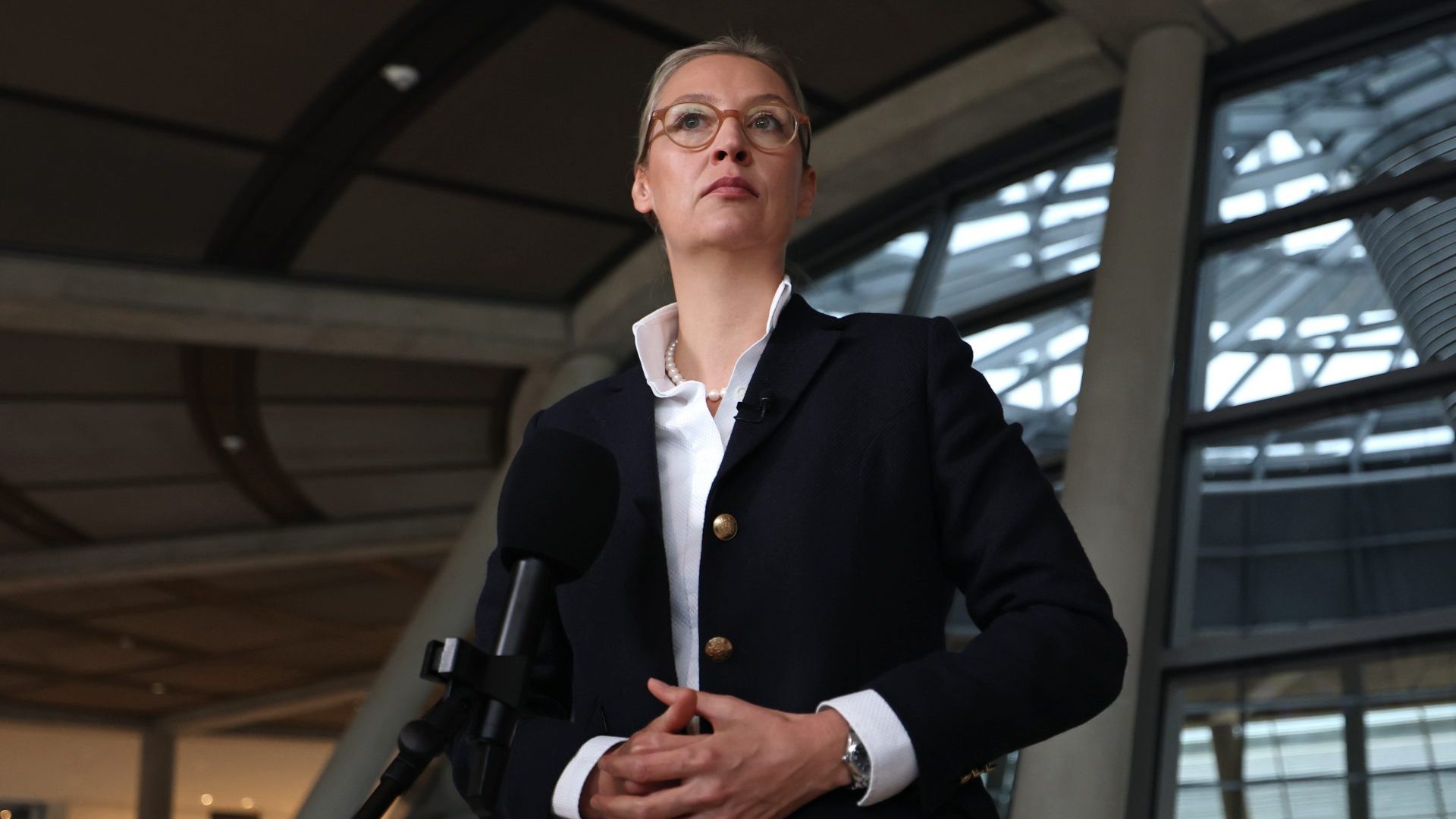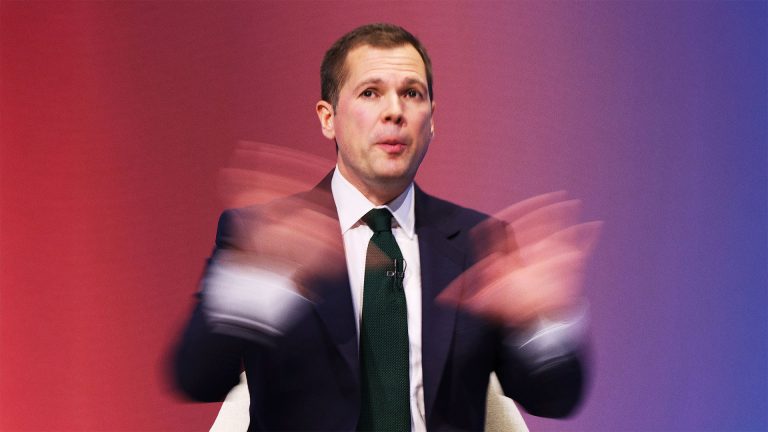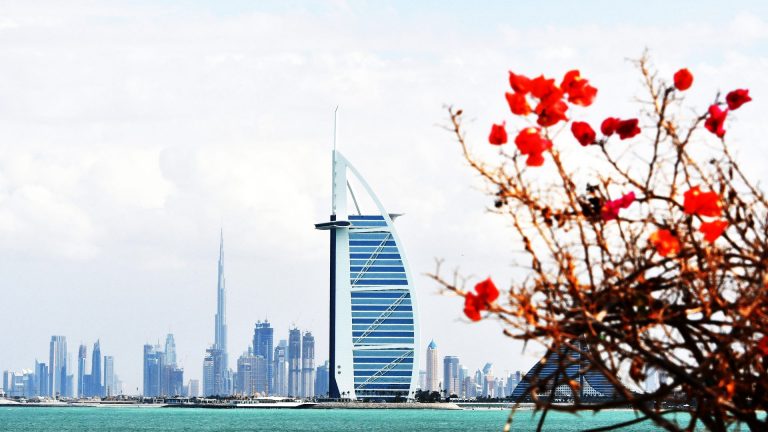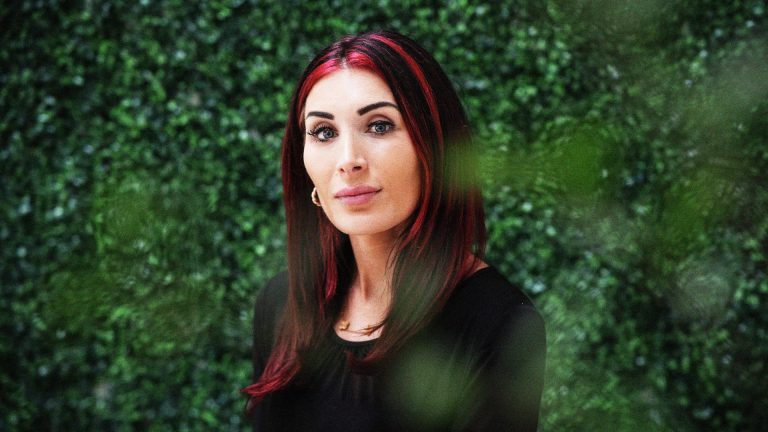So now we know. Hitler was terrible because he was a Communist and he went round nationalising all the important industries. As for today’s Jews, they are extremely vulnerable to Muslim crime and are best protected by the Alternative for Germany.
Alice Weidel, the AfD candidate to become chancellor, was in discursive, flirtatious form in her love-in with Elon Musk on January 9. Interview it wasn’t, nor did the echoey transatlantic online connection give it the convincing mood of fireside chat.
This was a business arrangement; the richest man in the world endorsing one of Europe’s most extreme right wing parties and she paying due homage to him. “This is a new situation for me, in which I’m not interrupted or negatively framed,” Weidel suggested nervously when asked at the outset to summarise what the AfD stands for.
Once they had both got into their stride, once she had got over Musk mispronouncing her name as both Veedel and Weedel, they indulged in mutual denunciations of all things “left wing”. That comprised Angela “she ruined our country” Merkel, “Muslim criminals”, a bureaucracy that stifles enterprise and a “woke mind virus”.
Throughout her curious career, Weidel has done whatever it takes to get ahead and get noticed, a woman of artfully manufactured convictions that adjust to the requirements of the moment. She has knifed some party rivals in the front, others in the back, to ease herself into the top slot. Yet no matter how hard she tries to please those that matter, she makes an incongruous fit.
As Melanie Amann, deputy editor of Der Spiegel, put it, when Weidel first rose to prominence:
“How can a lesbian woman raising two children together with her partner even bear the existence of a party that disparages gays and lesbians as an ‘outspoken minority’? And how can an economist who has a residence in Switzerland, who has lived in China for years and has worked for globally networked companies beat the drum for a party that wants to preserve Germany’s national ‘identity’ and seal its borders?”
You may well ask, but beyond disparaging laughter at the stupidity of the question, you will invariably not get an answer from Weidel herself. Put it another way: what is a woman who has recently worked for Goldman Sachs and the Bank of China doing espousing the staunch anti-globalisation mantra in defence of “hard-working Germans” that is the stock in trade of the AfD?
Except she wasn’t doing any of that in front of Musk, the tech mega-bro who represents the small-state, low-tax wing of the Trumpian project. They both instead ululated about being “conservative libertarians”, railing against the role of the state.
The AfD’s manifesto for the February 23 elections is light on economic matters, as well it might be, given that the far right across Europe and the US is confused. The AfD talks of freeing the labour market from “unnecessary restrictions” and reforming the basic minimum income to incentivise work.
But beyond calling for more child support (the far right’s obsession with the falling birthrate among “real Germans”), it does not advocate anything more than a tinkering of the social market, which has been the bedrock of post-war German society. Even at the peak of global free market hegemony in the 1990s and 2000s, Germans were suspicious of Anglo-Saxon ‘liberal’ economic policies.
Still Weidel yelped appreciatively at each and every one of Musk’s musings. California, he informed the audience on his social media plaything, had legalised crime, and that thefts of below $1000 are no longer investigated, let alone prosecuted. Germany, Weidel countered, had lost track of 57% of all migrants. Suffice to say, nobody can find stats to back either assertion.
But in this not-so-new world of fake news and parallel universes, the truth is a flexible friend. Weidel tickled Musk’s ego enough to ensure that he repeated his exhortation to Germans, first made in the once-mainstream-conservative newspaper Welt am Sonntag a week earlier, to vote for her party. “Only the AfD,” Musk declared portentously to his X audience, “can save Germany. End of story”.
How much of a boost will this give them? Opinion polls in Germany, which (famous last words) have tended to be reasonably accurate, have the AfD on 20%, a figure that is staggering in a historical context. The post-war constitution introduced a 5% hurdle back in the day, believing that would be enough to keep extremist groups out of the Bundestag and regional parliaments.
Polling numbers have shifted only a little since mid-November, since Olaf Scholz had his hissy fit with the leader of the Free Democrats, one of his coalition partners, and dissolved his own government. The Christian Democrats of Friedrich Merz continue to be far in the lead, with over 30%. The AfD is second. By contrast, Scholz’s Social Democrats and the Greens languish in the mid-teens.
There are ample reasons, however, for caution. First comes the obvious point that pollsters are increasingly wrong. They are keen on a methodology that factors in ‘silent’ AfD voters and that they are not under-stating its appeal. “Mal sehen,” as Germans would say. We shall see.
Even if they aren’t, the influence of the global far-right is already infecting mainstream politics. Merz has made sure that his party bears no resemblance to the ‘welcome culture’ of Merkel of 2015, when she allowed in one million migrants. The SPD and Greens are also talking tough.
Everyone is looking over their shoulder at Donald Trump, mindful that during his first term he reserved a particular antipathy towards Germany. As for Ukraine, solidarity is not what it was.
Then comes the Austria example. What happens if post-election coalition negotiations founder? Scholz’s ‘traffic light’ coalition disintegrated because the protagonists couldn’t work with each other. That’s what happened over the border, leaving Austria’s president no choice but to invite the far right FPÖ to try to form the next government.
Could that happen here? Could the ‘firewall’ designed to keep the AfD finally collapse?
Europe already has to contend with Viktor Orban in Hungary, his mini-me Robert Fico in Slovakia, Giorgia Meloni in Italy (though some claim she has softened into a mainstream conservative) and it has Geert Wilders pulling the strings in the Netherlands. Austria is likely next, followed by the Czech Republic. France is in crisis. What chance Weidel? It is still remote, but is it out of the question?
There is nothing particularly eye-catching about Alice Elisabeth Weidel – except the fact that her grandfather, Hans, was a prominent Nazi judge. But then again, she wouldn’t be alone in that. Her father, Gerhard, was a sales rep, and she was born in 1979 in her mother’s home town of Gütersloh and brought up in Versmold, two unremarkable towns in the centre of Germany.
Classmates attest to her being “dominant” and sometimes arrogant – attributes often disproportionately used against women. Young ‘Lille’, as was her nickname, didn’t seem to let it get to her.
She did well at school and in 2004 earned top grades at the University of Bayreuth. From there she moved effortlessly to Goldman Sachs Asset Management, which she described as a “dream employer”. She didn’t stay long – a trait she would demonstrate throughout her corporate career – moving on to Allianz Global Investors and then six years in China where she worked on a PHD before joining the Bank of China.
She ended up bizarrely in the small town of Bad Rothenfelde in Lower Saxony, at a company specializing in meat refinement and animal feed. A junior manager at the firm, called Heristo, had been to high school with her. Again, she didn’t stay long.
Nor does that period seem to make much sense. From that point on, she worked as a self-employed consultant for start-ups. After a bright start, why did her career seem to stall?
It was at this time, in 2013, that she joined the AfD, enthused by its hostility to the Euro. (It is often forgotten that the roots of the party lay in Euroscepticism). She rose quickly up the ranks, joining its executive committee in 2015 and becoming co-lead candidate in the 2017 elections.
She didn’t hide her sexuality; nor did she want to talk about it. Yet she realised early on that she did need to bring it out into the open, if only to enable her to close it down again.
Mariam Lau, a journalist at die Zeit who covers the German right, says that Alexander Gauland, her co-leader and rival at the time, talked about many furious letters he received from party members, asking him what “someone like her” was doing at the top of the party.
In April 2017, at a party congress in Cologne, she addressed the issue head-on for the first time. Or rather she didn’t. Or she did, but in her own way. She used sarcasm.
How could someone like her be in a party like this? “I am a HOMOSEXUAL,” she told the audience, emphasising the word slowly, pulling a fake-shocked face and starting to laugh.
“She wants to have full control over what journalists write about her and seeks to avoid constantly reminding her party of how different she is,” Lau notes.
The far right in several European countries, such as in the Netherlands, have repurposed and instrumentalised gay rights to create support for anti-immigration positions. In May 2016, Weidel ostentatiously cancelled a planned meeting with the head of the Central Council of Muslims. She wanted to have nothing to do with “confessed supporters of Sharia law” who had not distanced themselves from “Stone Age-practices”.
She regularly uses the term “Muslim gangs”, on one occasion proclaiming: “As a woman, I want to be able to take the last train home at night without fear”.
In its manifesto, which she helped oversee, the AfD doubles down on traditional gender roles. It refers to “politically-motivated programmes” having “no place in schools.” As for trans rights, she told a TV interview, the “pop culture of a minority is being promoted while parents ask themselves how to protect children from it in kindergartens and schools.”
Weidel is currently the public face of the AfD. In a party that contains out-and-out Nazi sympathisers alongside populists in the mould of, say, Marine Le Pen or Nigel Farage, she used to be seen as belonging to its moderate wing.
But these terms are increasingly redundant. In an era when the extreme is the new mainstream, when truth is whatever you want it to be, this outsider-turned-insider seems determined to install herself at the heart of German politics for some time to come.
John Kampfner is the author of In Search Of Berlin and Why The Germans Do It Better











